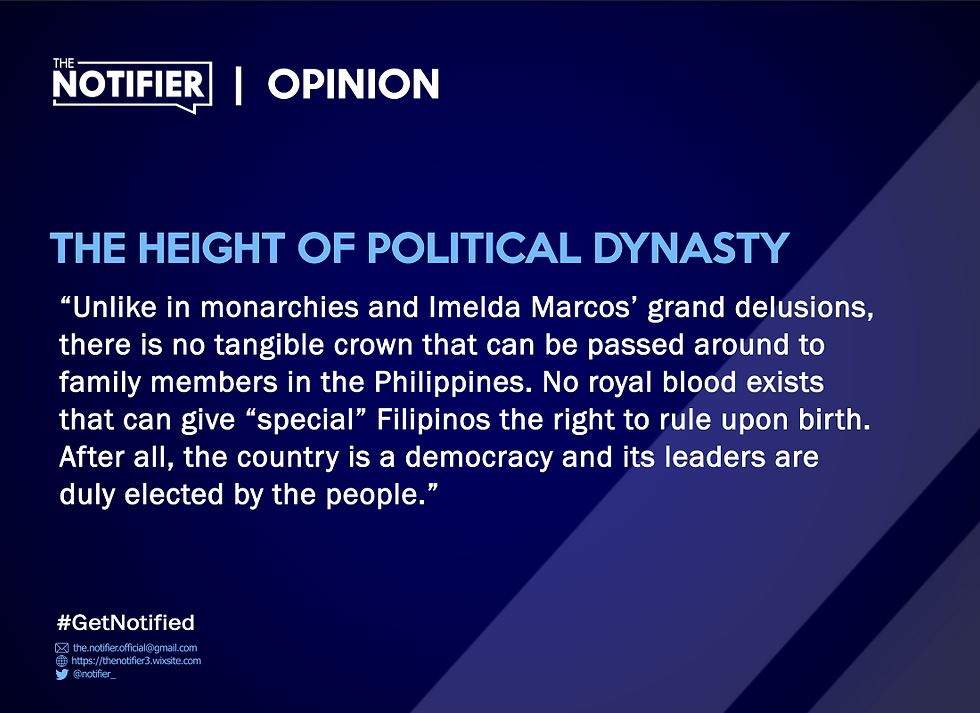The Height of Political Dynasty
- Katrina Joy Fabian
- Jun 11, 2021
- 2 min read

A political dynasty is the closest thing to a crown.
Unlike in monarchies and Imelda Marcos’ grand delusions, there is no tangible crown that can be passed around to family members in the Philippines. No royal blood exists that can give “special” Filipinos the right to rule upon birth. After all, the country is a democracy and its leaders are duly elected by the people.
However, reality tends to disappoint.
The Philippine political landscape is notorious for political dynasties. Since the start of the First Republic of the Philippines, political families have been swarming the country like greedy flies searching for money and power. All 80 local provinces are littered with pompous pretend royals.
Political clans treat the public elective office as their personal property and inheritance. Multiple members of the family, even those who just turned 18, participate in the elections. They simultaneously hold public office to monopolize power and preserve the status quo.
Often, they create dynasties to avoid lawsuits and corruption scandals.
Despite great public dissatisfaction, no law has been passed to prevent political dynasties. After all, how can members of the House ban the practice when about 70% of them came from political dynasties themselves?
There is an insultingly long list: the Ampatuans in Maguindanao, Aquinos in Tarlac, Estradas in San Juan, Gordons in Olongapo (now replaced by Paulinos), Marcoses in Ilocos and much more. Even the country’s first family, the Dutertes of Davao City, is a political dynasty.
“I am embarrassed because people keep on repeating that phrase about dynasty. It’s true. It’s not good if only one family is in power for so many years. But the problem lies with people,” President Duterte remarked in June 2019.
The President, who blamed voters for “wanting” political dynasties to remain, has monopolized political power with his family in Davao City for more than two decades. Duterte, who followed in his father’s footsteps, entered politics at a young age. Then-President Corazon Aquino appointed him as officer-in-charge vice mayor in 1986.
Two of Duterte’s children hold government positions in Davao City. His eldest daughter, Sara Duterte, is the mayor while Sebastian Duterte, his second son, is the vice mayor. His eldest, Paolo Duterte, resigned as representative of Davao City’s 1st district out of delicadeza after his public quarrel with his daughter, Isabelle Duterte.
Meanwhile, Duterte’s youngest child, Veronica Duterte, has no position yet in Davao City because she is still a minor.
Now, with the oldest Duterte’s six-year term already ending in 2022, he is using all means possible to stay in power and avoid awaiting lawsuits – including appointing Inday Sara as his successor.
Truly, the height of political dynasty.





Comments